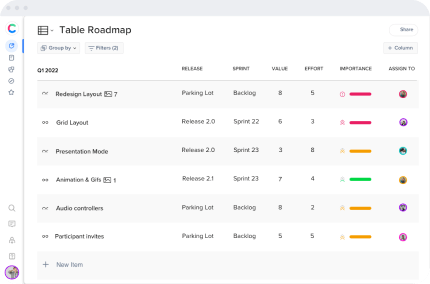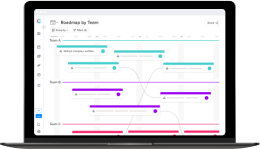What is a fundamentally new product?
A fundamentally new product is unlike any other product in the market during production. It is not just an improvement on an existing product but is unique at a core level, providing functionality and results that have not been seen before. This is because it gives customers the ability to do something that no other product can. People view it more as an invention with a long-term effect, breaking new ground, and sometimes creating a new industry.
Creating a Fundamentally New Product
Few products in the market are fundamentally new. Most competitors’ products have similar features that offer similar results. This means that most products are only incremental and not new ones created from scratch.
The specific innovative product takes a novel approach to the functionality offered by other products. So teams can only create a fundamentally new product if they understand their target audience, the latest existing innovations, and where gaps to fill are in the market. In that regard, a fundamentally new product must:
● Introduce a new technology or process that gives users functionality not currently available on the market.
● Use existing technology in new ways to provide users with new performance levels they’ve not had before.
● bring together existing technologies to create a new product with functionality that users haven’t seen in existing products
To achieve this, developing a fundamentally new product calls for extensive research, ideation, and input from internal and external professionals. Realizing new untapped potential through research facilitates the development of new technology and methods of employing it. This leads to the development of new business models and products that are not comparable to existing ones.
An iterative workflow helps guide production along a steady path to completion. Additionally, gathering feedback from potential users enables production teams to create an effective product. This means that the product should solve user problems more successfully and effectively than other products and versions currently on the market.
Benefits of a Fundamentally New Product
- Usefulness – Fundamentally, new products are products that customers want to solve an issue or make something better. This is because they are developed based on users’ needs and wants.
- Increased Return of Investment (ROI) – Fundamentally, new products attract users as they look forward to having new experiences different from what they had with other products. This increases a company’s income.
- Inspire Future Creativity – A new product encourages new ideas and innovations from employees and competitors in the industry.
- Competitiveness- Developing new products enables businesses to stand out from the competition. Users prefer to use new products that provide better experiences, so competitors are compelled to develop new products to keep the market competitive.
The Big Risk
The significant risk of building a fundamentally new product is that it may fail to find a user base. This will disadvantage a product team when they create the product because they have no competitors with similar products in the market. A fundamentally new product has no market history to indicate whether it will find willing customers, hence the need for intensive research and marketing.
Since a fundamentally new product is unique, it is hard to predict the level of success it will achieve. However, it is a risk worth taking, as it could be valuable and relevant to the market for years to come. Besides, there is always room for improvement.


